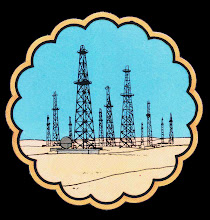Dayak is a generic term used to identify the non-muslim population in the interior of Borneo, the 3rd biggest island on the planet, now shared by the Indonesian and Malaysian states. The name was fixed by Dutch marauders, meaning something like "from the interior". Punan is the name of a formerly nomadic group in the island. Most Punans used to lived off hunting, but have in the last decades (or most probably even before) settled and become farmers like Dayaks.
Both are minority groups, the Punan being a much smaller unit than the Dayaks. Both were also notorious headhunters, a practice banned by British and Dutch pressure in the 1920s. Headhunting was a classical adulthood ritual without which no man was allowed to marry. This ritual was said to improve harvests and the skull was given all forms of honor as well as the duty to protect the village from several ailments. According to some observers, it was a way of acquiring an enemy's valor and status.
These recordings by Manuel Gomes include performers from the following Dayak divisions: Tunjung, Kenyah, Benuaq, Bahau, Meratus, and Kelabit. These, together with the Punan's, were recorded along the Mahakam river, Kalimatan Timur, and the Sarawak Highlands.

1. Hudoo Kenyah (Kenyah)
Played "to activate the growth of rice plants"
2. Kuranji Manis (Meratus)
A love song in which an old lady recalls being courted by a man who compared her with a soft flower called kuranji manis.
3. Ayun Suli (Meratus)
A lullaby.
4. Belian - Slow (Meratus)
A ritual healing ceremony, sang by the healer. This particular song is slow because the disease is benign.
5. Penyamutan Adat (Benuaq)
A song performed to welcome strangers in the village
6. Ngasak (Benuaq)
A tune accompanied by female dancing at the time of rice sowing.
7. Belian - Fast (Meratus)
A fast healing song for a serious illness; drums are incessantly played to recover the healer's spirit.
8. Tarian Huddoo (Bahau)
Part of an agrarian/ancestor ritual, the dance uses masks to chase away evil from the rice crop.
9. Tari Sapeh Kariang (Bahau)
Played in sapeh, it is a welcoming piece.
10. Tari Belian (Benuaq)
A ritual healing ceremony, performed by one Sentiu Dukun.
11. Adtah Ulus Lagku-Ai-Ai (Kelabit)
A love song.
12. Arang Kadang (Kelabit)
Entertainment night music for women's chorus.
13. Tubung (Kelabit)
A call for prayer at the church.
14. Tutu Udan Nepara (Kelabit)
A rain song, asking for showers.
15. Rabu-Rabu Dadtam Kinih (Kelabit)
An excerpt of a song in which a woman courts a man. They finally join at dawn.
16. Sepuk Noge Kepulu (Benuaq)
A melody to attract and capture birds.
17. Muwankai (Tunjung)
Played for a buffalo sacrifice at a funeral ceremony
18. Uyan Tiga (Kelabit)
Played in the sapeh, this song was interpreted when returning from headhunting.
19. Lago Serimbung (Punan)
A welcome song for a guest.
20. Game Approach Technique (Punan)
An array of sounds played with the mouth to approach game when hunting and merge with the environment.
21. Mengahu (Punan)
A hunting song.
Played "to activate the growth of rice plants"
2. Kuranji Manis (Meratus)
A love song in which an old lady recalls being courted by a man who compared her with a soft flower called kuranji manis.
3. Ayun Suli (Meratus)
A lullaby.
4. Belian - Slow (Meratus)
A ritual healing ceremony, sang by the healer. This particular song is slow because the disease is benign.
5. Penyamutan Adat (Benuaq)
A song performed to welcome strangers in the village
6. Ngasak (Benuaq)
A tune accompanied by female dancing at the time of rice sowing.
7. Belian - Fast (Meratus)
A fast healing song for a serious illness; drums are incessantly played to recover the healer's spirit.
8. Tarian Huddoo (Bahau)
Part of an agrarian/ancestor ritual, the dance uses masks to chase away evil from the rice crop.
9. Tari Sapeh Kariang (Bahau)
Played in sapeh, it is a welcoming piece.
10. Tari Belian (Benuaq)
A ritual healing ceremony, performed by one Sentiu Dukun.
11. Adtah Ulus Lagku-Ai-Ai (Kelabit)
A love song.
12. Arang Kadang (Kelabit)
Entertainment night music for women's chorus.
13. Tubung (Kelabit)
A call for prayer at the church.
14. Tutu Udan Nepara (Kelabit)
A rain song, asking for showers.
15. Rabu-Rabu Dadtam Kinih (Kelabit)
An excerpt of a song in which a woman courts a man. They finally join at dawn.
16. Sepuk Noge Kepulu (Benuaq)
A melody to attract and capture birds.
17. Muwankai (Tunjung)
Played for a buffalo sacrifice at a funeral ceremony
18. Uyan Tiga (Kelabit)
Played in the sapeh, this song was interpreted when returning from headhunting.
19. Lago Serimbung (Punan)
A welcome song for a guest.
20. Game Approach Technique (Punan)
An array of sounds played with the mouth to approach game when hunting and merge with the environment.
21. Mengahu (Punan)
A hunting song.

Recorded by Manuel Gomes in Borneo, Dec 1997 - Jan 1998.
Released by Buda Records in 1999.link@320





8 comments:
an essential collection, and to my knowledge the only available covering that culture/region. thanks for the share, and the lovely presentation, too!
I believe there are some other Sarawak recordings out there... But you are absolutely right in pointing out that, despite all the talk about global coverage and stuff, there is still a lot of terra incognita in this planet - which is probably a good thing.
There aren't many traditional recordings from Sarawak, found two recorded by Reine-Reusch for Pan Records here (also at sfrp), and a mention of an 5-hour tape at University of Malaya.
The thing about coverage is always dictated from the music market - and sometimes "traditional" music from exotic places are en vogue, but this trend rarely lasts too long, or gets transformed and mixed up with other - more accessible forms (f.e. traditional Aboriginal music from Australia mixed up with techno, urgh). I think there will ever be "new" music out there - if I think of music of the place I live, in the North of Germany, there's a lot which I can't get on record, street musicians who are incredible, music from children, teenagers, amateurs, maybe there's also some left of the "family music" played only for the own amusement...
Who the hell is Manuel Gomes?
I didn't find any references on the web about this guy.
It's a very very very Portuguese name. Like myself, by the way.
Good question. Call us if you find out.
Great article.
I'd be incredibly grateful if someone could share this album with me... a8cc674d@opayq.com
Post a Comment